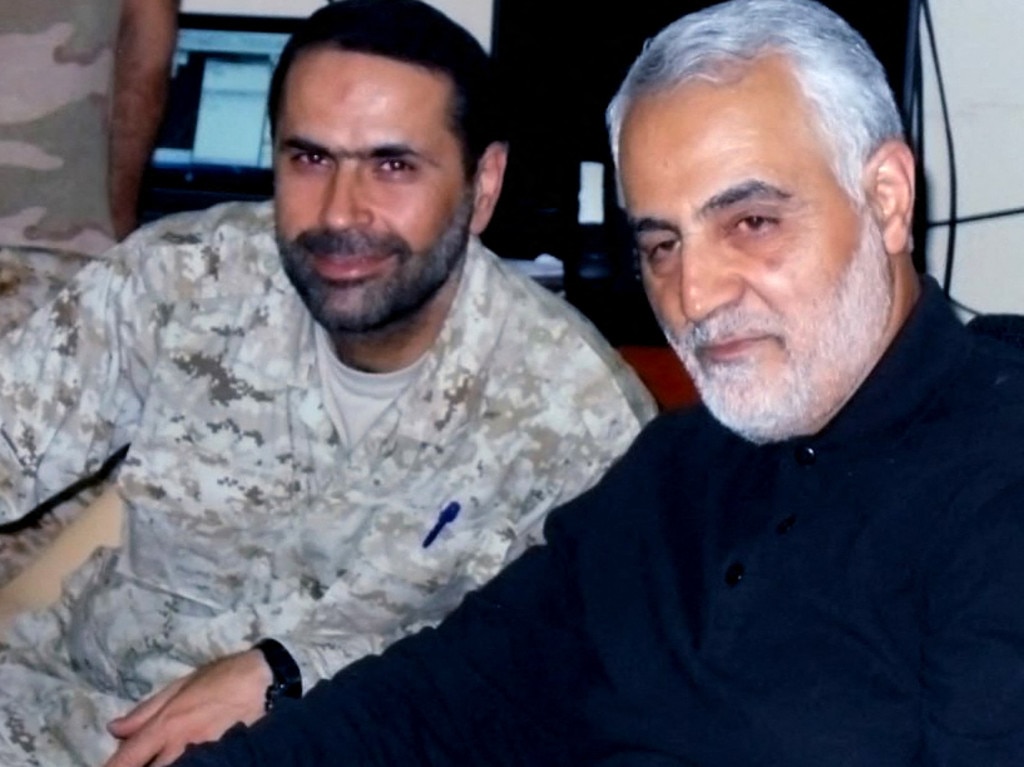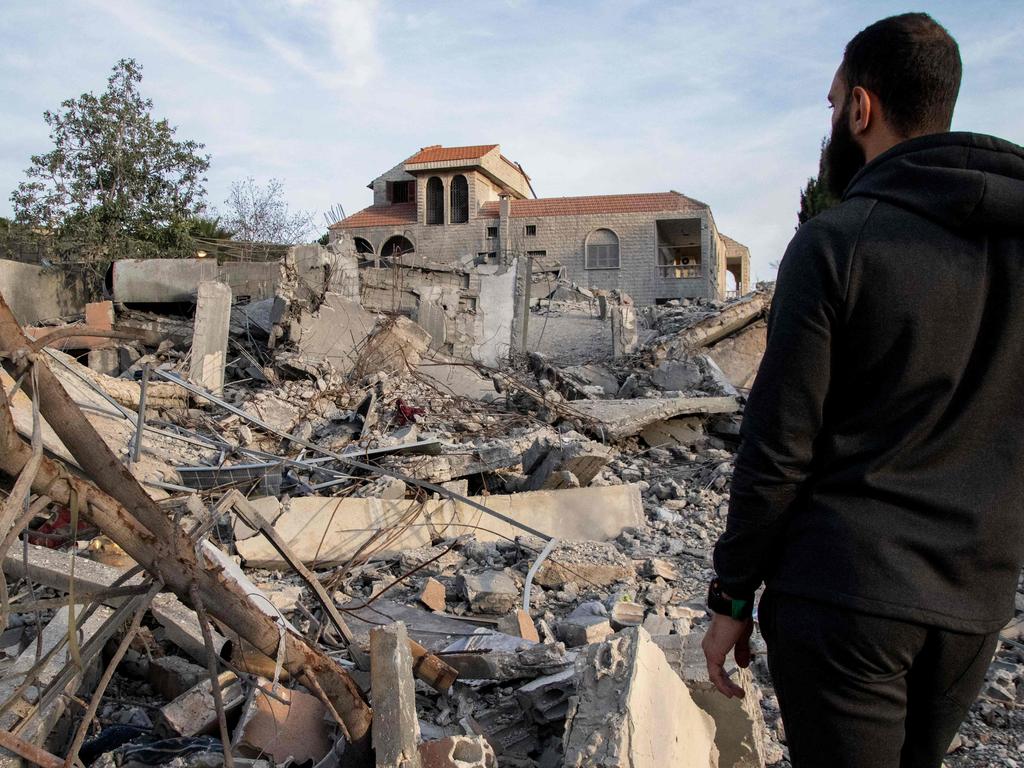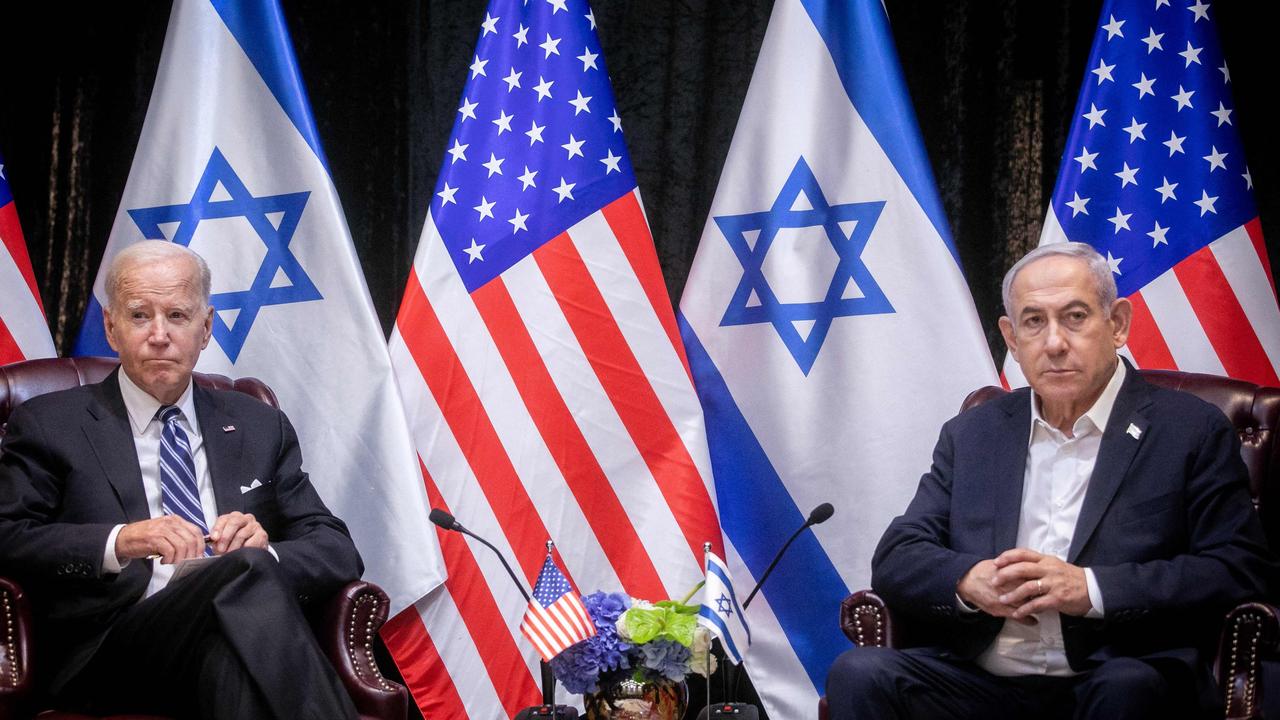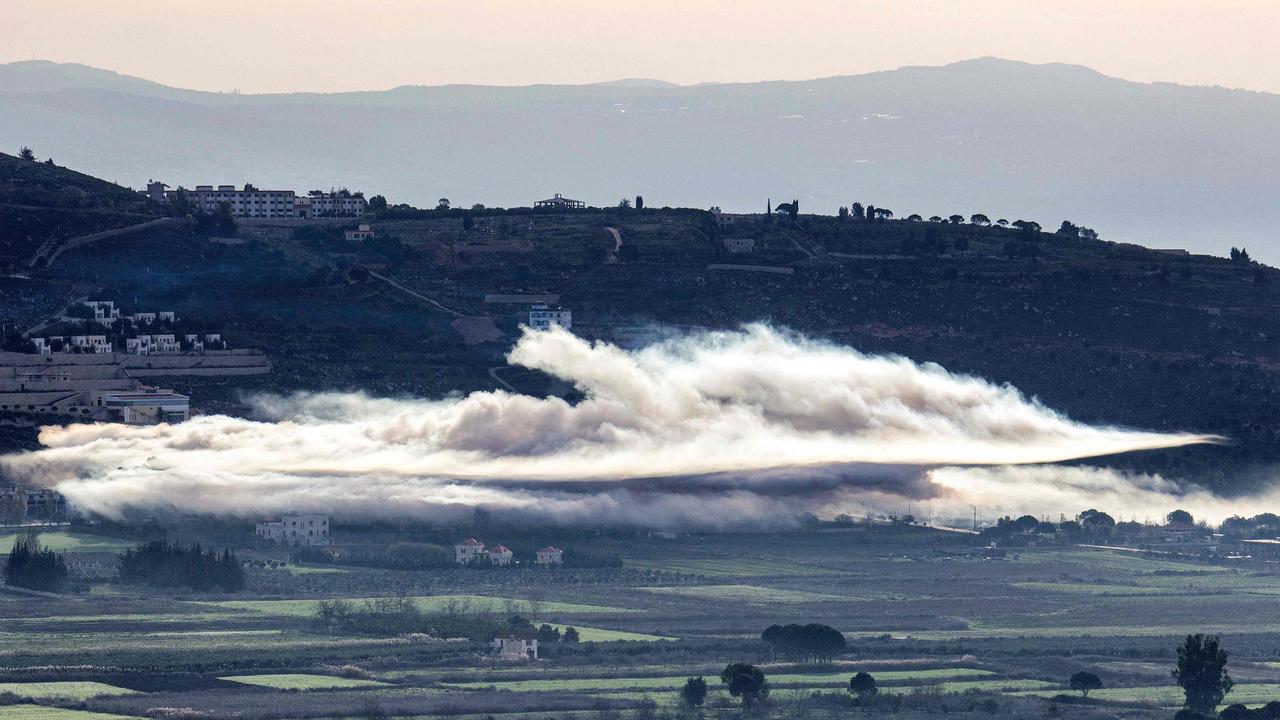Brewing Middle East war that United States admits it can’t win
One death could spark a new war that the US has already said it can’t win – a war that could produce 500,000 casualties.
ANALYSIS
The assassination of a Hamas commander in Beirut appears to have set Israel on the path to a broader regional war. And it’s a war the United States does not believe it can win.
“The priority isn’t to get into a war”, Israeli Defense Minister Yoav Gallant said yesterday, but “we are willing to sacrifice. They know we can copy-paste (Gaza) to Beirut.”
Tit-for-tat fighting between the Lebanon-based Iran-backed militant group Hezbollah and Israel has escalated over the past week. The latest round of fighting was triggered after Salah al-Arouri, a Hamas leader involved in decades of attacks on Israelis, was killed in an air strike on Lebanon’s capital, Beirut.
Hezbollah retaliated at the weekend by hitting an Israeli Defence Force radar facility with a guided missile. Israel responded Monday by killing Hezbollah senior commander Wissam Tawil while he was driving through Lebanon’s Majdal Selm village, 6km from the border.
But international analysts say the withdrawal of Israeli troops and armour from Gaza – and increasingly escalatory rhetoric from its far-right coalition government – may be preparation for something more.
“We are fighting an axis, not a single enemy,” Gallant insisted yesterday. “Iran is building up military power around Israel in order to use it.”


A ground invasion of Lebanon risks regional escalation, dragging in jihadists from Syria and across the Middle East. And nearby nations such as Egypt, Jordan, Iraq and Saudi Arabia are already having to contend with restless populations appalled at the extraordinarily high death toll among Palestinian civilians.
“It is in no one’s interest — not Israel’s, not the region’s, not the world’s — for this conflict to spread beyond Gaza,” US Secretary of State Antony Blinken’s spokesman said as a diplomatic mission departed for the Middle East Monday.
And the United States Defence Intelligence Agency (DIA) has reportedly issued an assessment warning that Israeli forces would be spread too thin to prevail in yet another Middle Eastern war.

The fog of war
Israel has one of the region’s largest militaries – and undoubtedly the best-equipped.
The US has supplied it with advanced F-35 stealth fighters, sensors, and precision-guided weapons.
But Russia’s failed invasion of Ukraine has shattered confidence in the war-winning ability of advanced technology. Stockpiles are limited as these complex and expensive systems take time to manufacture. Once they’re used up, Ukraine has shown fighting rapidly reverts to World War I-style trench warfare.

Israel already has cause for concern.
“Israel has so far failed to achieve either of its primary war aims: the destruction of Hamas and freedom for the remainder of the 240 Israelis taken hostage on October 7,” says Australian National University research scholar Ian Parmeter.
“Hamas’ main achievement is that it is still standing. To win, the militant group does not have to defeat Israel – it needs merely to survive the IDF onslaught.”
US Secretary of State Blinken has been striving to get the Netanyahu government to end its ground assault on Gaza. But he has met with little success so far.
And a new round of diplomatic talks this week is producing little optimism.
“Citizens in the Arab states that have signed peace agreements with Israel are clearly angry,” says Parmeter. “And an Israeli-Saudi agreement to normalise relations between the countries, which had been imminent before the conflict, is off the table for now.”
Ignition point
“The Hezbollah militant group will do a lot of huffing and puffing over the killing of al-Arouri in a Hezbollah-controlled part of Beirut,” says Parmeter. “But it takes its orders from Tehran, which still shows no sign of wanting to become directly involved in the war.”
Tehran has its own problems. An Islamic State bomb attack last week killed about 100 Iranians attending a memorial for a high-profile general. And that, says Parmeter, will redirect its focus towards internal security.
But Israel may have other ideas.
“Taken together, the fighting in Gaza, rocket launches from Lebanon, Iran-backed threats to US forces in Syria and Iraq, and Red Sea tensions showcase the Iranian attempt to inflame various arenas in the region,” says Federation for the Defence of Democracy (FDD) fellow and Jerusalem Post analyst Seth Frantzman. “Israel has said it is prepared for escalation on any of these fronts.”
And Prime Minister Netanyahu is once again staking his reputation on Israel’s security.
“I suggest that Hezbollah learn what Hamas has already learned in recent months: No terrorist is immune,” Netanyahu told a Cabinet meeting at the weekend. “We are determined to defend our citizens and to return the residents of the north safely to their homes.”
The October 7 Hamas-led terrorist attack killed 1200 in southern Israel. In the three months since then, Israel has reportedly killed 22,000 Gazans, of which about one-third is claimed to have been Hamas militants.
“The militant group has obviously been hurt,” says Parmeter. “Israel claims to have killed or captured between 8000 and 9000 of Hamas’ approximately 30,000 – strong fighting force – though it has not explained how it calculates militant deaths.”
But civilian casualties in any invasion of Lebanon would also likely be inordinately high if Israel was to double-down on its controversial Gaza tactics. And this risks turning global opinion even further against Israel.
“The number of casualties in Lebanon could be anywhere from 300,000 to 500,000 and entail a massive evacuation of all of northern Israel,” Middle East Institute analyst Bilal Saab told the Washington Post.
“But I don’t think it would be limited to these two antagonists,” he said.
Jamie Seidel is a freelance writer | @JamieSeidel






